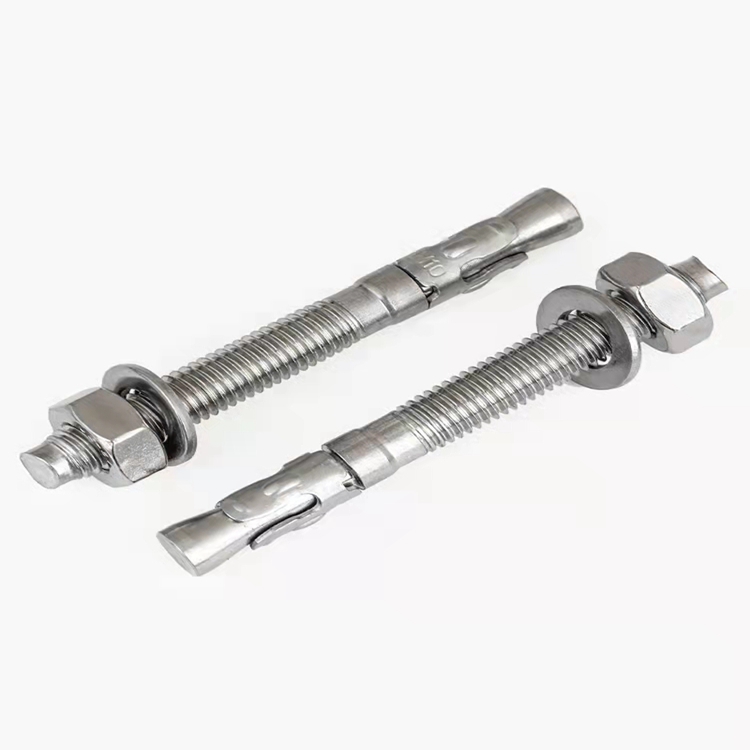machine bolt and stud bolt
gru . 05, 2024 05:54 Back to list
machine bolt and stud bolt
Machine Bolts and Stud Bolts Understanding Their Applications and Differences
In the realm of mechanical engineering and construction, the significance of bolts cannot be overstated. Among the various types of fasteners available, machine bolts and stud bolts are essential components widely used in diverse applications. Understanding the characteristics, uses, and differences between these two types of bolts is crucial for engineers and construction professionals.
Machine Bolts
Machine bolts, often referred to as hex bolts, are designed with a thick head and a uniform diameter along the shaft. They typically feature a hexagonal head that allows for easy fastening using a wrench. Machine bolts are available in various lengths, materials, and grades, making them suitable for a variety of applications, from automotive manufacturing to construction.
One of the primary advantages of machine bolts is their versatility. They can be used in conjunction with nuts and washers to create strong, secure joints. Machine bolts are ideal for situations where a high level of clamping force is required, and they can withstand significant loads. Moreover, their standardized dimensions facilitate easy replacement and maintenance, contributing to the overall efficiency of assembly lines and construction projects.
In addition to their robust design, machine bolts are often made from materials such as steel, stainless steel, and alloyed metals, ensuring resistance to corrosion and mechanical stress. These characteristics make them particularly useful in outdoor applications or harsh environments where exposure to moisture and chemicals is common.
Stud Bolts
In contrast, stud bolts are elongated fasteners with threads on both ends and a smooth middle section. They are typically used in conjunction with nuts to fasten components securely. Generally, stud bolts are employed in applications requiring high tensile strength and resistance to shear forces.
machine bolt and stud bolt

Stud bolts are commonly found in industries such as oil and gas, chemical processing, and power generation, where they are used to secure flanges, pipelines, and equipment. Their design allows for greater flexibility in fastening, as the length of the stud can be tailored to meet specific installation needs. This adaptability is especially valuable in situations where access to the fastening area is limited.
One particular advantage of stud bolts is their ability to distribute loads evenly along the threaded section, reducing the risk of localized stress that might occur with other types of fasteners. This feature makes them an excellent choice for high-pressure applications, ensuring the integrity and reliability of the joint.
Key Differences
While machine bolts and stud bolts serve similar purposes, their design and applications differ significantly. Machine bolts possess a defined head, making them suitable for applications where space allows for the use of a wrench. In contrast, stud bolts lack a head and require access to the nut on each end, making them more appropriate for confined spaces where traditional bolting might not be feasible.
Furthermore, machine bolts are typically easier to install and remove due to their head design, while stud bolts may require more precision when threading and can be more complicated to assemble in challenging environments.
Conclusion
In conclusion, both machine bolts and stud bolts play critical roles in various industrial applications. Their unique designs make each suitable for specific needs within engineering and construction. By understanding their properties, advantages, and limitations, professionals can make informed decisions when selecting fasteners for their projects, ultimately promoting safety, efficiency, and structural integrity. Whether one opts for the simplicity of machine bolts or the adaptability of stud bolts, both are invaluable assets in the toolkit of modern engineering.
Latest news
-
Reliable Axle Nuts Supplier | Quality & Precision Fasteners
NewsAug.23,2025
-
Durable Bolts for Lawn Mower Handle - Top Supplier & Manufacturer
NewsAug.22,2025
-
High-Quality Bolts for Lawn Mower Handle Supplier & Manufacturer
NewsAug.21,2025
-
Reliable Axle Nuts Supplier | High-Quality Automotive Parts
NewsAug.19,2025
-
Premium Wire Bolts Suppliers | Durable & Reliable Fasteners
NewsAug.18,2025
-
Leading Metric Wood Screw Companies & Manufacturers
NewsAug.17,2025
